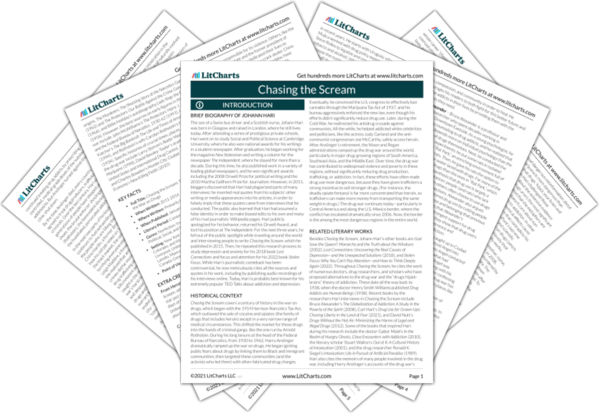Anslinger’s war on drugs had the opposite of its intended effects in virtually every way. But on the TV program, instead of accepting this reality, he stuck to the story in his head and lashed out at the people who showed him the facts. This scene’s implications are particularly chilling because the Nixon administration significantly expanded the war on drugs starting in 1971. In other words, just a year after the drug war was publicly exposed as a failure, the government chose to ramp it up anyway. Hari’s message is clear: science and the facts have never driven drug policy—rather, politicians’ feelings and self-interest do.
